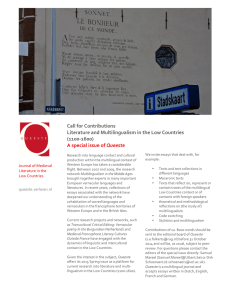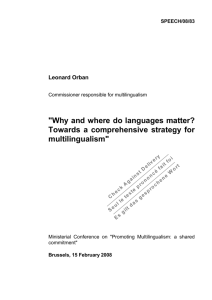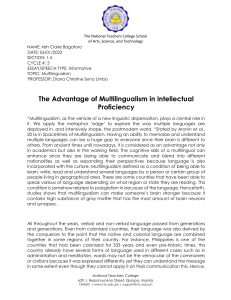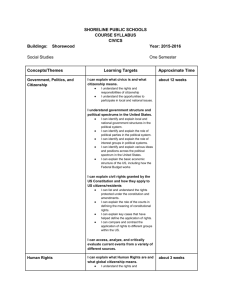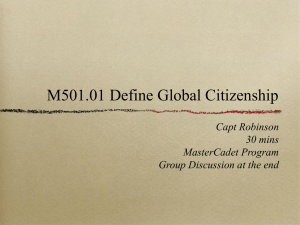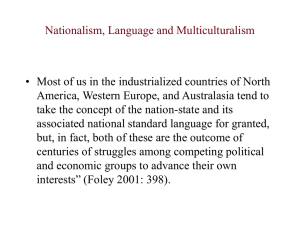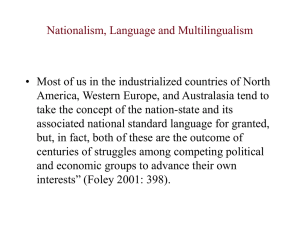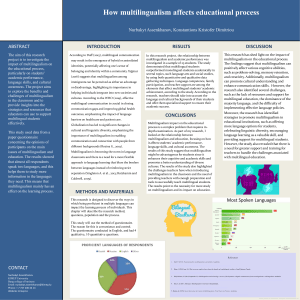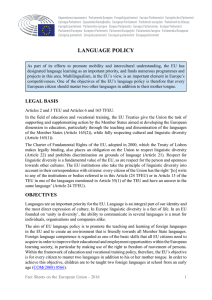Contesting the default: The impact of local language choice for learning Barbara Trudell
advertisement
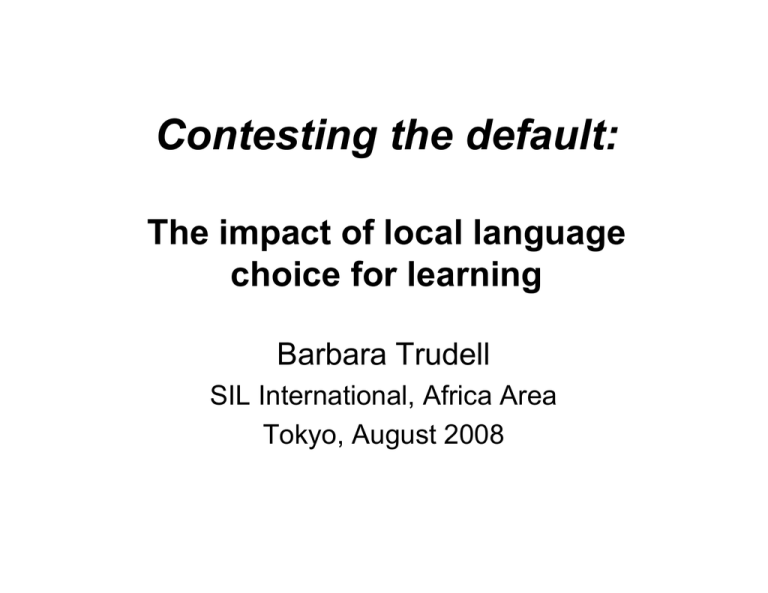
Contesting the default: The impact of local language choice for learning Barbara Trudell SIL International, Africa Area Tokyo, August 2008 Multilingualism: a gift, a resource Multilingualism • contributes to the reinforcement of one’s own, local identity • permits healthy engagement with the rest of the world . . . and THAT is its primary advantage relative to globalization. Stable multilingualism Requires intentional, institutional support for the language with less political capital Using local languages in learning contexts: multiple points of impact • • • • Development Language maintenance Academic outcomes National citizenship Human-centered development: Enlarging people’s choices Development as the expansion of human capabilities (Sen 1999) Wherever people are put at the centre of the development process, issues of language will always be close to the surface. (Robinson 1996) Current challenges to development • Low education levels continue to inhibit economic development, especially in rural areas (World Bank 2007) • EFA goals lagging: literacy, educational quality, gender parity (GMR 2008) • Language choice is relevant to each of these educational challenges Sustainable development will not be achieved at the expense of the people of Africa, nor at the expense of their languages. (Djité 2008) Language maintenance Language standardization in Bafut: mbaranga’a or ambaranga’a? Academic outcomes Thomas and Collier 2002 Qualitative and quantitative studies show conclusively: Using a language the child understands well leads to improved academic outcomes Fafunwa 1989 Williams 2006 Abadzi 2006 Brock-Utne, Desai and Qorro 2005 Bunyi 1999 Canvin 2003 From the known to the unknown National citizenship The use of [international languages] allows only a vertical approach to political interaction; the minority who speak them control the majority who do not. Using local languages allows more horizontal interaction, and the level of debate changes altogether. (Matsinhe 2008) Needed: Enhanced access of local-language speakers to processes of national citizenship … and access to fluency in the language of power • Globalization and localization: parallel processes • The strength and importance of the local – including culture and language The intentional development and use of local languages in education and learning strengthens the adaptability of developing-world citizens, allowing them to survive and even thrive in their world today.
